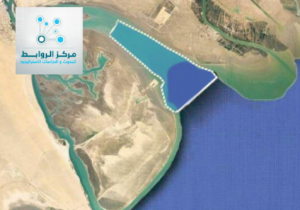Legal and Constitutional Aspects of the Abrogation of the Khor Abdullah Agreement: Iraqi Sovereignty at a Crossroads
Legal and Constitutional Aspects of the Abrogation of the Khor Abdullah Agreement: Iraqi Sovereignty at a Crossroads
4-21-2025
 Researcher Shaza Khalil*
Researcher Shaza Khalil*
National Sovereignty Violated.
The 2023 decision by the Iraqi Federal Supreme Court to annul Law No. 42 of 2013, ratifying the agreement regulating navigation in the Khor Abdullah Strait between Iraq and Kuwait, has reopened debate over Iraqi sovereignty, economic strangulation, and the potential legal, political, and even military dimensions of this sensitive issue.
The issue is not merely legal; it deeply affects Iraq’s sovereignty over its territorial waters and maritime ports, and impacts its national dignity, economy, and national security. It is a matter of national dignity… and dignity is non-negotiable.
First: The legal basis for the court’s decision
. The court’s decision was based on a constitutional flaw in the ratification process of the agreement, as it deemed that the vote did not require a two-thirds majority, as stipulated in Article 61/Fourth of the Iraqi Constitution. Therefore, the law ratifying the agreement is constitutionally invalid, without affecting the substance of the agreement itself or its political or international content.
Although the decision is essentially technical and constitutional, it has had significant political and diplomatic repercussions, both domestically and internationally, and has re-raised fundamental questions about Iraq’s sovereignty over its strategic maritime corridor. There is now pressure on the Federal Court to overturn the previous decision issued by the Federal Supreme Court.
Second: Why did the President and Prime Minister resort to appeal?
The filing of two separate appeals by President Abdul Latif Rashid and Prime Minister Mohammed Shia al-Sudani before the same court reflects grave concern at the highest levels of Iraqi power. They based their appeals on Article 8 of the Constitution, which obligates the state to respect its international obligations, and on the 1969 Vienna Convention on the Law of Treaties, specifically Article 27, which prohibits states from invoking their domestic laws to justify their failure to implement international agreements.
This move reflects an attempt to avoid compromising Iraq’s international credibility while simultaneously containing growing popular anger within Iraq over what many view as an unfair agreement and a threat to national sovereignty.
Third: Khor Abdullah…Navigational Agreement or Strategic Stranglehold?
Khor Abdullah is not just a shared waterway; it is Iraq’s sole maritime artery to the world. Any infringement on Iraq’s rights to this waterway constitutes direct economic strangulation.
Many Iraqis believe that:
The agreement gave Kuwait strategic superiority in navigation.
The demarcation was not carried out according to the “thalweg” rule, which determines the border based on the deepest part of the waterway. Rather, the division was carried out in the middle of the waterway, which limits Iraq’s ability to use its sea lanes.
The agreement was reached in light of Iraq’s political, security and economic weakness after 2003.
The danger lies in the fact that this agreement has contributed to restricting the movement of Iraqi ships and has weakened the national economy, which relies primarily on the southern ports, most notably Umm Qasr.
Fourth: Historical Background… Agreements Under Pressure
From the 1922 Uqair Agreement to Security Council Resolution 833 of 1993, Iraq has consistently been a victim of border demarcation decisions imposed on it during periods of weakness or occupation. Many believe that the 2012 Khor Abdullah Agreement is no exception, but rather a continuation of this pattern of impositions.
Indeed, the 2013 vote on the agreement in the Iraqi parliament, which opponents described as a “shameful vote,” sparked widespread resentment, particularly since the agreement was passed amid intense disagreement and without a comprehensive national debate.
Fifth: The political and security dimensions
. The repercussions of this issue extend beyond the legal dimension to a geopolitical dimension. Kuwait is demanding the completion of the demarcation of the maritime border with clear support from the Gulf Cooperation Council and the United States, which presents Iraq with a real challenge: Will it abide by an agreement it has not ratified constitutionally? Or will it renegotiate despite international pressure?
Some voices within Iraq are calling for a comprehensive review of the Khor Abdullah Agreement, and even a reconsideration of UN Security Council Resolution 833, which many consider the source of the concession of maritime sovereignty.
In light of this escalation, scenarios of military tension cannot be ruled out, even if they are not currently being publicly discussed.
Sixth: Between international law and national rights.
It is true that international law sanctifies the stability of borders and agreements, but it also recognizes the illegitimacy of agreements signed under duress or in unequal circumstances.
Today, Iraq possesses the legal, political, and historical right to reopen this file, especially if it can prove that the agreement was concluded under circumstances that do not reflect the full national will, or that it harms its vital interests.
Seventh: What is required now?
Iraq must:
Launch a comprehensive diplomatic campaign to clarify his position to the world.
Demand renegotiation on the basis of the Thalveg principle, to guarantee his navigational rights.
Resort to the international court if necessary.
Strengthening its naval capabilities to protect its waters and ports without resorting to escalation.
Conclusion: Beware the wrath of Iraqis.
The message is clear: Iraq’s sovereignty and its maritime and economic rights are not subject to compromise. The Federal Court’s ruling, although technical on the surface, has reopened an old wound and raised a loud voice that Iraq will no longer submit.
Beware the wrath of the Iraqis… they are a people who do not forget, a homeland that is recovering, and will not give up its rights, not to the sea, not to the land, not to dignity.
Economic Studies Unit / North America Office /
rawabetcenter.com
